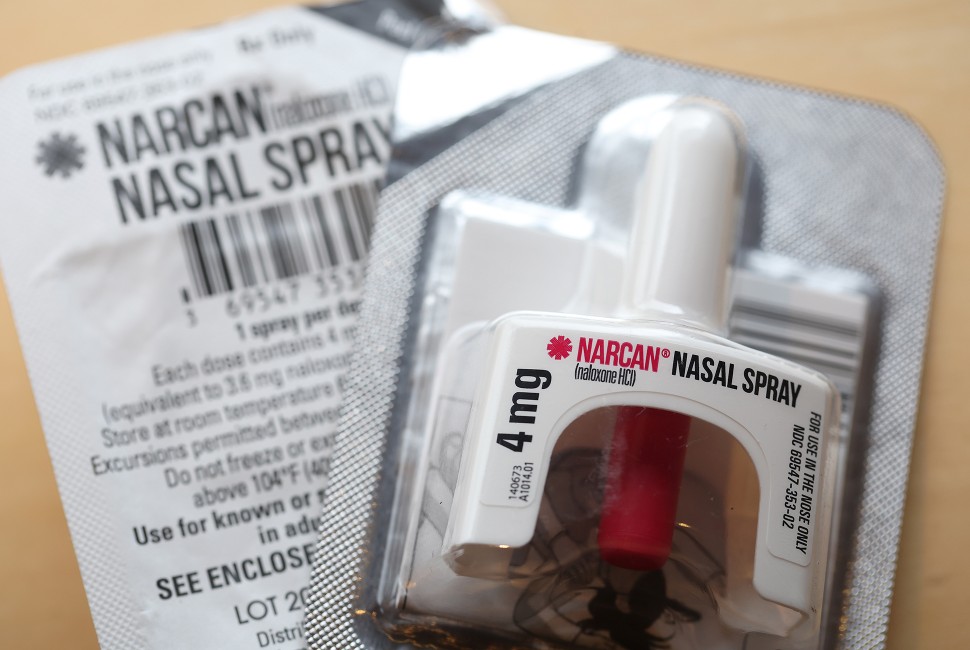On the evening prior to Valentine’s Day, approximately 40 Northwestern students gathered in a classroom within the Technological Institute for a session distinct from the typical chemistry and computer science lectures usually held there. They were participating in the Opioid Overdose Prevention and Naloxone Training provided by Northwestern Health Promotion and Wellness (HPaW), a branch of Student Affairs.
During the following hour, students were instructed on how to avert, identify, and respond to opioid overdoses. Importantly, they departed with two doses of intranasal naloxone, a life-saving medication known as Narcan, capable of reversing an opioid overdose, along with the knowledge of its appropriate administration.
Educating on opioids and campus resources
Amid the ongoing opioid crisis in America, as opioid overdose fatalities persist, Northwestern entities and community members are striving to ensure that outreach and education regarding illicit substances encompass comprehensive information on opioids and opioid overdoses.
A pivotal component of these endeavors is HPaW’s training program, designed to assist students in comprehending how to safeguard themselves and others from these substances, particularly the highly potent synthetic opioid.
“Fentanyl, we see it all over the news everywhere,” remarked Liz Akinboboye, a health promotion specialist at HPaW involved in organizing the training. “It’s prevalent right now, and … most of the people who ingest fentanyl, it’s accidental, because it’s laced in certain substances.”
In the Cook County area alone, there were a staggering 2,000 confirmed opioid overdose deaths in 2022, surpassing the previous year’s record of 1,935. More than 91% of these deaths involved fentanyl.
“Regardless of if you are someone who uses these substances yourself, it’s really important to recognize what an overdose may look like,” emphasized Akinboboye.
To date, over 220 students have participated in 13 training sessions since HPaW commenced offering them in October. Numerous student organizations have sought training, with Fraternity and Sorority Life prioritizing training for a majority of its members.
“Students have been very grateful,” Akinboboye noted. “We weren’t surprised that the interest [in the training] was very big. It’s still continuing to grow.” She also aspires for Northwestern’s training program to serve as a model for other institutions seeking to provide prevention education to their students.
Participants not only receive naloxone at the training sessions but also , utilized to identify the presence of fentanyl in a substance before consumption, and a CPR mask for safe delivery of rescue breaths. Furthermore, free fentanyl test strips are accessible at the center desk in Norris University Center and on the third floor of Searle Hall. Trained students can also request additional naloxone doses from HPaW.
Peer-to-peer engagement
Another facet of HPaW’s campus outreach involves collaborating with students like Claire Derksen, a third-year student in Weinberg, to enhance peer-to-peer drug education. Derksen serves as the president of Northwestern’s new chapter of Team Awareness Combating Overdose (TACO), a national student organization advocating for judgment-free drug education and overdose prevention training.
Derksen, a neuroscience student on the pre-med track, spent a gap year working as an EMT in rural Michigan, where she frequently responded to calls related to opioid overdoses. Witnessing how naloxone could effectively save lives, she was struck by its limited availability.
“Seeing that, in effect, is part of what made me passionate about preventing overdoses,” she shared.
Driven by this mission, Derksen facilitated the establishment of TACO at Northwestern. Presently, the club supports HPaW’s initiatives by aiding in naloxone training and conducting drug education through its social media platforms. The new organization is also devising plans to distribute free fentanyl test strips and naloxone at central campus locations, with trained members available to address inquiries.
Engaging in conversations with peers sans judgment can empower students to pose questions they might otherwise hesitate to ask, underscoring its significance in TACO’s outreach efforts, as per Derksen.
“It’s important to have these discussions and start the conversation, because otherwise shame and stigmatization can stop people from getting the help they need,” she emphasized.
